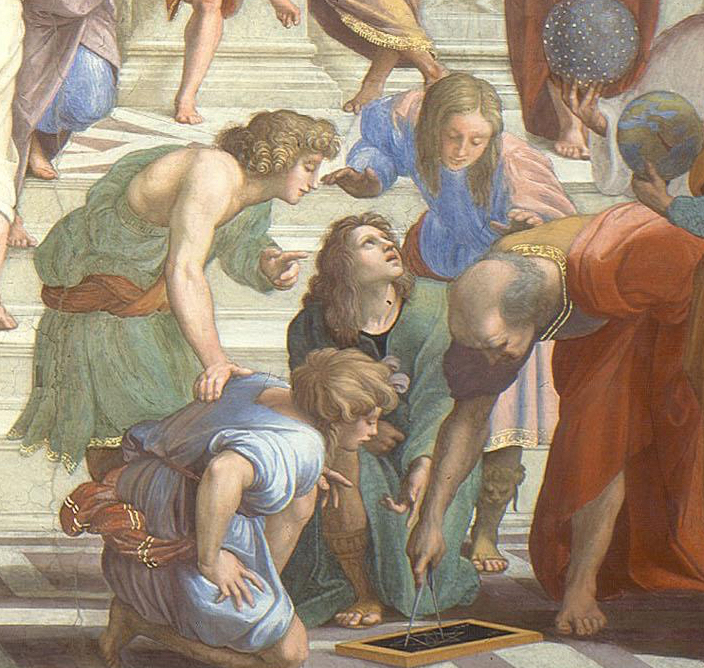San Francisco from the Sea
An Explication by Arthur Chandler
Serene, indifferent of Fate,
Thou sittest at the Western Gate;
The new city of San Francisco, untouched as yet by the forces of fate — in war, politics, religion, etc. — waits to shape her own destiny — a destiny that bridges America with Asia.
Upon thy height, so lately won,
Still slant the banners of the sun;
It is the morning’s slanting beams that shine on the “instant city” that arose so recently as a result of the Gold Rush.
Thou seest the white seas strike their tents,
O Warder of two continents!
The waves rising and falling, like the tents of the miners and the makeshift businesses in San Francisco, remind Harte that the city will be the bridge-master of the connection between Asia and America.
And, scornful of the peace that flies
Thy angry winds and sullen skies,
The windstorms and cold fog make San Francisco no peaceful, tropical paradise.
Thou drawest all things, small, or great,
To thee, beside the Western Gate.
People from all over the world, from every station in life come to San Francisco in pursuit of their desires.
O lion's whelp, that hidest fast
In jungle growth of spire and mast!
The city’s population are not the powerful lions of their home cultures, but strong-willed offspring of those places who have come to San Francisco across the Isthmus of Panama or around the Horn, as the hundreds of abandoned ships in Yerba Buena Cove testified.
I know thy cunning and thy greed,
Thy hard high lust and willful deed,
For all the strength of character of the immigrants, their goals are still sordid: avarice, lust, deceit, and willfulness.
And all thy glory loves to tell
Of specious gifts material.
The saga of the Forty-niners is world-wide, but is based on the superficial greed for gold.
Drop down, O Fleecy Fog, and hide
Her skeptic sneer and all her pride!
But the very atmosphere of cold fog will envelop the early denizens of San Francisco.
Wrap her, O Fog, in gown and hood
Of her Franciscan Brotherhood.
This all-pervading cool, fog-infused climate will in time temper the character of the city into a spirit akin to the oneness with Nature exemplified by Saint Francis, patron saint of San Francisco.
Hide me her faults, her sin and blame;
With thy gray mantle cloak her shame!
All the recklessness, meanness, and other faults will become enveloped in the cleaning atmosphere of San Francisco.
So shall she, cowled, sit and pray
Till morning bears her sins away.
This enforced recognition of the all-pervasive power of Nature will lead to a new consciousness and a new vision of the real purpose of life.
Then rise, O Fleecy Fog, and raise
The glory of her coming days;
Harte now looks to the future, when the real glory of San Francisco will come into being.
Be as the cloud that flecks the seas
Above her smoky argosies;
The deeds of real worth will take place under the mantle of fog over the city.
When forms familiar shall give place
To stranger speech and newer face;
New people from all over the world, speaking different languages, raising different buildings and institutions, will shape the city of the future.
When all her throes and anxious fears
Lie hushed in the repose of years;
Harte looks backward from the future to his present time, when all the struggles, triumphs and disappointments will be finished.
When Art shall raise and Culture lift
The sensual joys and meaner thrift,
This is the true goal, the true “fate” of San Francisco: to become a city with its own arts, local institutions and civic personality — the music and universities, the tolerance of eccentricity and acceptance of the “stranger speech and newer face.”
And all fulfilled the vision we
Who watch and wait shall never see;
All these transformations of the character of the city will not come during Harte’s generation.
Who, in the morning of her race,
Toiled fair or meanly in our place,
In Harte’s own era, there were those who did well or did poorly in their life’s work.
But, yielding to the common lot,
Lie unrecorded and forgot.
In his bleak conclusion, Harte felt that his generation would all die without a trace of what or who they were.

























